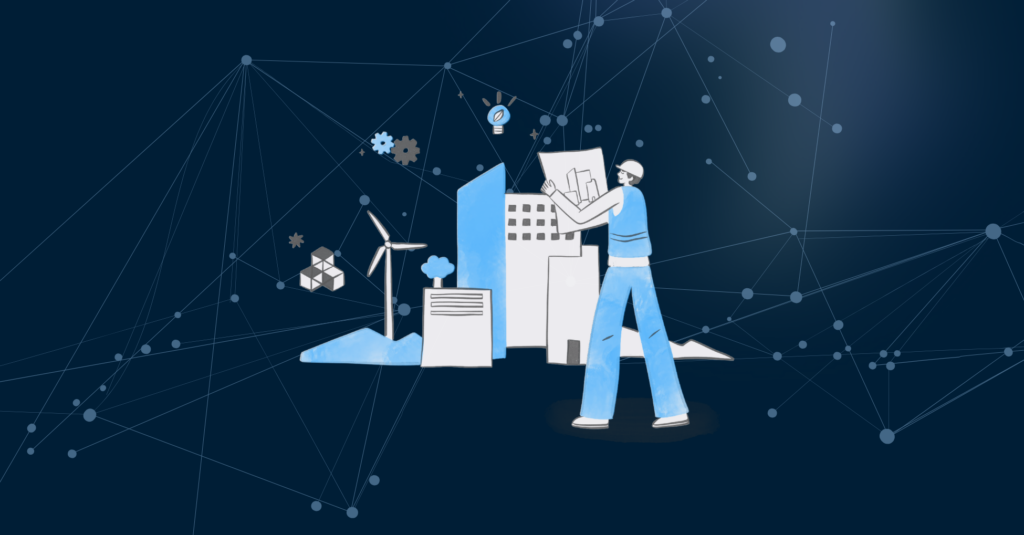1. Sustainability regulations are driving action around the world
Throughout the week, we heard many different perspectives on how businesses are responding to and preparing for the many sustainability regulations and climate policies that are emerging around the world, including the IFRS Sustainability Disclosure Standards and the Corporate Sustainability Reporting Directive (CSRD).
One expert at the UN Global Compact Leaders Summit humorously remarked “Sustainability regulations are like broccoli, just because it’s good for you doesn’t mean you like it”. She continued to say that while regulations may not always be favorable, “they play a vital role in leveling the playing field and pushing companies to dig deeper into their sustainability efforts. They challenge businesses to think harder, work harder, and ensure every single action is rooted in science”.
2. The shift towards more binding environmental regulation will reshape global supply chains
The shift towards more binding environmental regulation is requiring companies to disclose sustainability risks and impact – including emissions in their supply chain. However, creating a more sustainable supply chain can be challenging. The discussions revealed that the top 5 challenges companies face in building a sustainable supply chain are supplier engagement and accountability, high cost of implementation, lack of sustainability knowledge across suppliers, regulatory compliance, and limited access to sustainable materials.
When thinking about how to increase supplier engagement, panelists emphasized the importance of viewing suppliers as strategic partners rather than just vendors. Most importantly, they emphasized the need to understand the unique challenges suppliers face and to offer tailored resources, whether through greater capacity building and guidance on sustainable practices, or simplifying data collection processes. Providing incentives and recognizing supplier achievements was also identified as an effective strategy to boost engagement and foster long-term commitment to sustainability efforts.
3. Building performance standards are pushing buildings to reduce operational emissions, but more work needs to be done to reduce embodied emissions
As sustainability regulations push companies to dig deeper into their carbon footprints, the built environment is also facing pressure to decarbonize. The discussions highlighted the way in which building performance standards around the US, such as New York’s Local Law 97, will play a pivotal role in reducing operational emissions (the emissions from energy used in a building’s operations). However, experts at Climate Week emphasized that embodied carbon (the emissions from construction and material production), remains largely overlooked and that there’s a growing need to focus on embodied emissions. A promising initiative that was brough to surface was the North American Electric Construction Coalition, which includes cities like NYC, LA, San Diego, and others committed to using clean electric construction equipment for new buildings.
When experts from the private sector were asked what they need from governments to support building decarbonization, they emphasized the need for governments to go beyond just implementing policies and provide incentives, and to align regulations across local, national and federal levels wherever possible. When experts from the public sector, including the GHG Advisor to the New York Mayor’s Office, were asked what they need from the private sector, they asked for business leaders to stay involved and participate in net-zero pilot projects so they could provide actionable data on what works and what doesn’t.
The discussions also brought to surface a host of tools and standards that are available today, such as RIC’s “Whole Life Carbon Standard for Built Environment” that buildings, organizations and governments can leverage to support reductions in operational and embodied emissions.
4. Many companies are leveraging sustainability software and generative AI to manage their sustainability data
Technology plays a leading role in helping companies manage their sustainability data. With the plethora of regulations that are emerging around the world, emissions reporting is no longer just a good-to-have but rather a must-have. From carbon accounting software to generative AI, companies are increasingly relying on technology to automate and streamline the process.
While Generative AI offers a range of possibilities, from optimizing supply chain management to assessing carbon emissions, experts stressed that its use must be handled responsibly, as AI comes with its own environmental footprint and risks, such as disinformation. As only 2% of companies have fully mechanized their responsibilities for responsible AI use, many are still navigating the ethical and environmental implications. One expert noted that “The legacy companies leave will depend on how well they balance innovation with responsibility.”
5. Sustainability is a value-add for businesses of all sizes, including small & medium sized enterprises
Throughout Climate Week, there was a strong emphasis on the fact that sustainability is not just an environmental imperative but also a significant value-add for businesses of all sizes. By implementing energy and sustainability measures, companies can benefit from cost savings, higher operational efficiency, and enhanced regulatory compliance. Small and medium-sized enterprises (SMEs) are no exception; they too can achieve these advantages through effective decarbonization efforts. As one speaker at the UN Global Compact Leaders Summit highlighted, “Sustainability is not just a compliance checklist; it’s an opportunity for SMEs to create a new source of competitive advantage.”
However, the conversations acknowledged the unique challenges that SMEs face, such as limited resources and expertise. SME’s would benefit from technical training, financial resources, and platforms for knowledge sharing. Considering that SMEs represent 90% of the global private sector, providing this support and fostering their engagement in sustainability initiatives is crucial.
Final Reflections
Reflecting on the week, one thing is clear: we need to collaborate, and we cannot be complicit. One of the key quotes we took away was “Failing to plan is planning to fail.” Whether it’s aligning decarbonization efforts with resilience strategies or coordinating across supply chains, progress requires commitment and innovation. By planning ahead, companies can not only mitigate their environmental impact but also unlock new avenues for growth and resilience.
More About WatchWire
WatchWire by Tango is a market-leading, energy and sustainability data management platform that uses cloud-based software to collect, automize, and analyze utility, energy, and sustainability data metrics. WatchWire streamlines, automates, and standardizes your sustainability reporting process by integrating directly and/or providing reporting exports to ENERGY STAR Portfolio Manager, LEED Arc, GRESB, CDP, SASB, GRI, and more. The platform provides customizable dashboards, which allow asset managers, sustainability managers, engineers, and more to monitor individual key performance indicators (KPIs) and create custom views for specific use cases.
To learn more about WatchWire and its capabilities, you can visit our website, blog, or resource library, request a demo, or follow us on LinkedIn, Instagram, or Twitter to keep up-to-date on the latest energy and sustainability insights, news, and resources.
 Top Sustainability Trends to Watch in 2025
Top Sustainability Trends to Watch in 2025

 Log In
Log In









